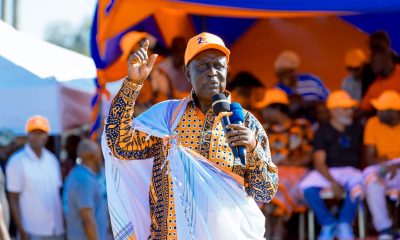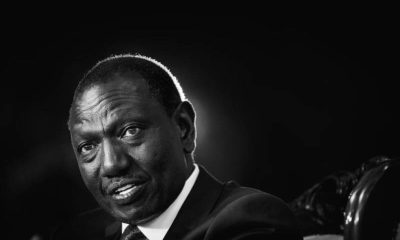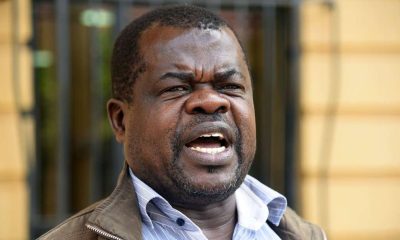Politics
Justin Muturi Is Politically Weightless, Ruto Can Afford Him But Doesn’t Need Him
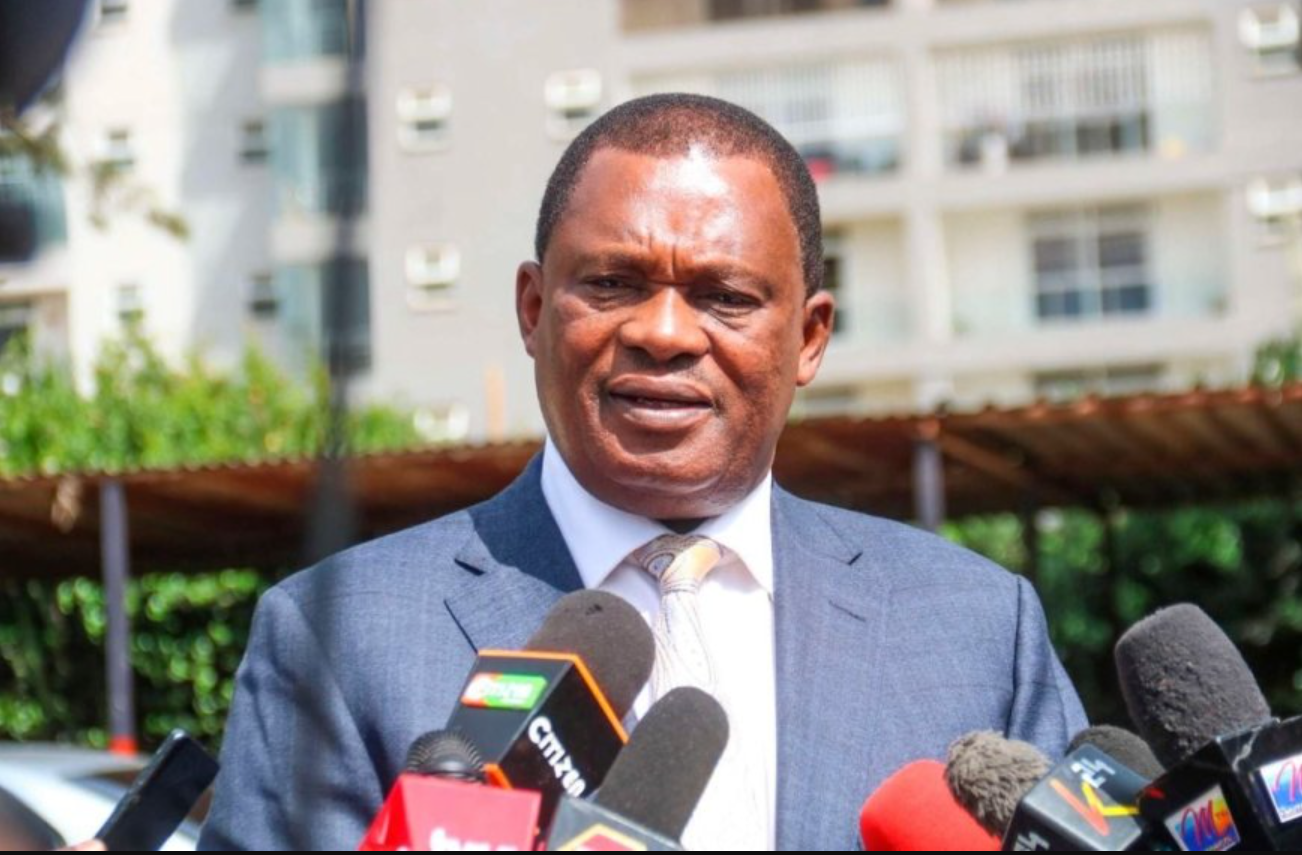
Former Public Service Cabinet Secretary Justin Muturi is back in the headlines for all the wrong reasons. After denying reports that he met emissaries from President William Ruto to discuss a political reunion, Muturi finds himself exposed as a politician struggling to remain relevant.
While he dismisses the reports as fake, observers say his denials do little to change the perception that he’s a lightweight politician chasing proximity to power. Ruto doesn’t need him, and even if he wanted him, Muturi’s political value has long evaporated.
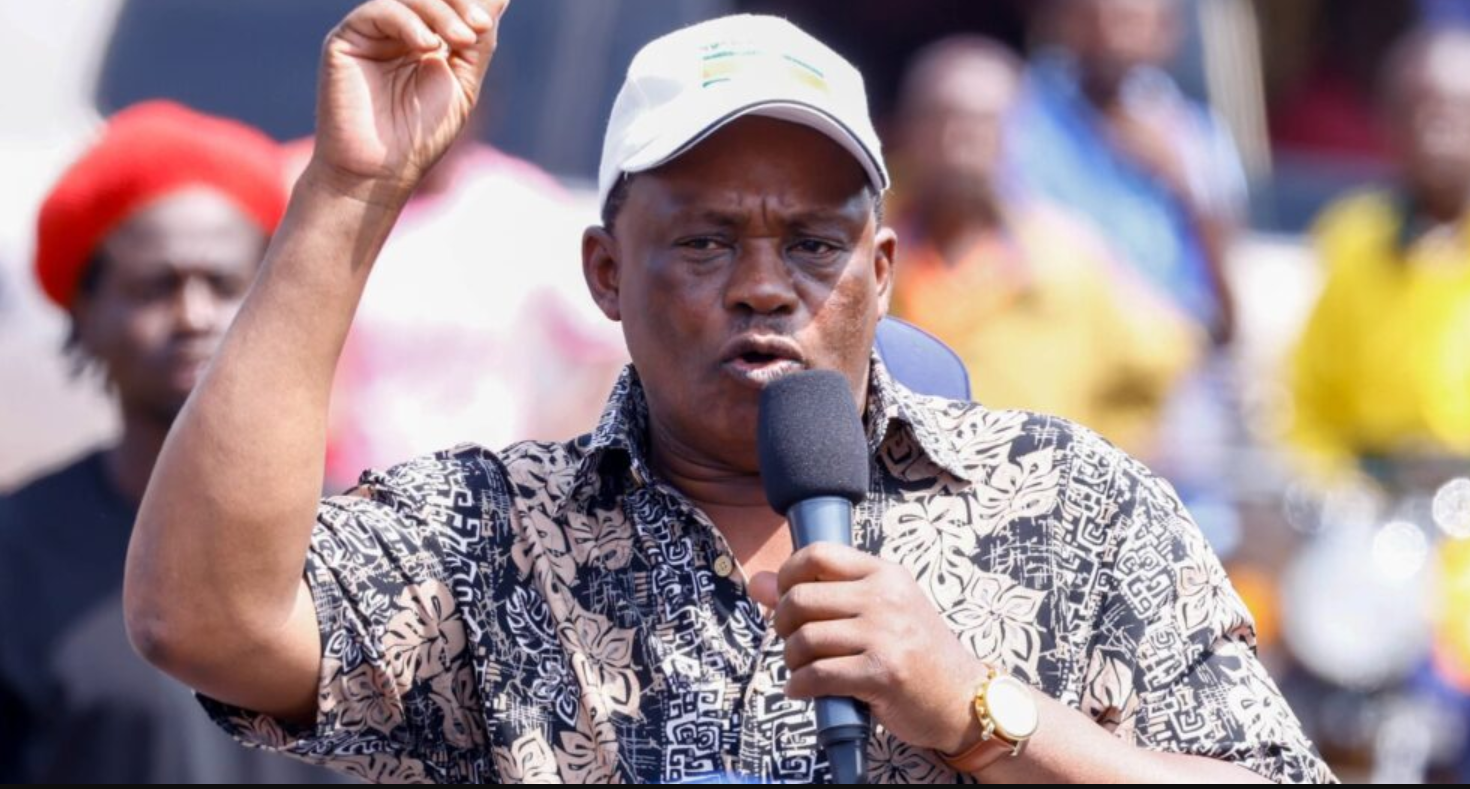
Justin Muturi’s political weight has always depended on who holds power—never on his own strength. Today, he is merely clinging to visibility by denying meetings that never happened. Ruto doesn’t need him, and the opposition barely notices him. In the ruthless world of Kenyan politics, Muturi is a name from yesterday—not a voice of tomorrow. [Photo: Courtesy]
Why President Ruto’s Men Have No Reason to Meet Justin Muturi
Justin Muturi’s denial of having met emissaries from President Ruto wasn’t necessary. No one in the president’s camp has any reason to chase him. His value in national politics is negligible. Muturi represents a breed of politicians who rode on the backs of stronger men and now struggle to stand on their own.
Muturi claimed on Sunday that the reports were “fake news” meant to create division within the opposition. Yet, his statement revealed more about his insecurity than his conviction. For a man whose career has been powered by proximity to power rather than political muscle, his fear of being forgotten is justified.
Ruto’s inner circle has met Uhuru Kenyatta, Raila Odinga, and Gideon Moi—all with political structures, constituencies, and influence. Muturi, on the other hand, brings nothing to the table. His Democratic Party (DP) can’t even shake the roots of the Democratic Congress Party (DCP) in his own Mbeere constituency. Why would Ruto spend political capital chasing a man who cannot even command his backyard?
Muturi’s Political Career Is Built On Borrowed Relevance
Muturi’s career reads like a man who has walked through every corridor of power but never left his mark. He first entered Parliament through a by-election in 1999 under KANU and managed to keep the Siakago seat in 2002. When KANU’s grip faded, so did Muturi’s influence. He became the Opposition Chief Whip and chaired the Public Investments Committee—roles that gave him visibility but no lasting political network.
In 2007, voters sent him home. He resurfaced in 2013 under The National Alliance (TNA), Uhuru Kenyatta’s party, but again lost his Mbeere North bid. Uhuru later rescued him by making him Speaker of the National Assembly, not because Muturi commanded national respect, but because he was loyal and safe.
From 2013 to 2022, Muturi presided over Parliament with bias and arrogance. His tenure as speaker was defined by open partisanship, leaning heavily toward the Jubilee government and alienating opposition MPs. His rulings often reeked of political favoritism, cementing his image as one of the most unprofessional Speakers in Kenya’s history.
When his political usefulness ended, Uhuru’s system parked him in the Attorney General’s office in 2022, and later, Ruto recycled him into the Ministry of Public Service in 2024—a soft landing for a man too lightweight for real political combat.
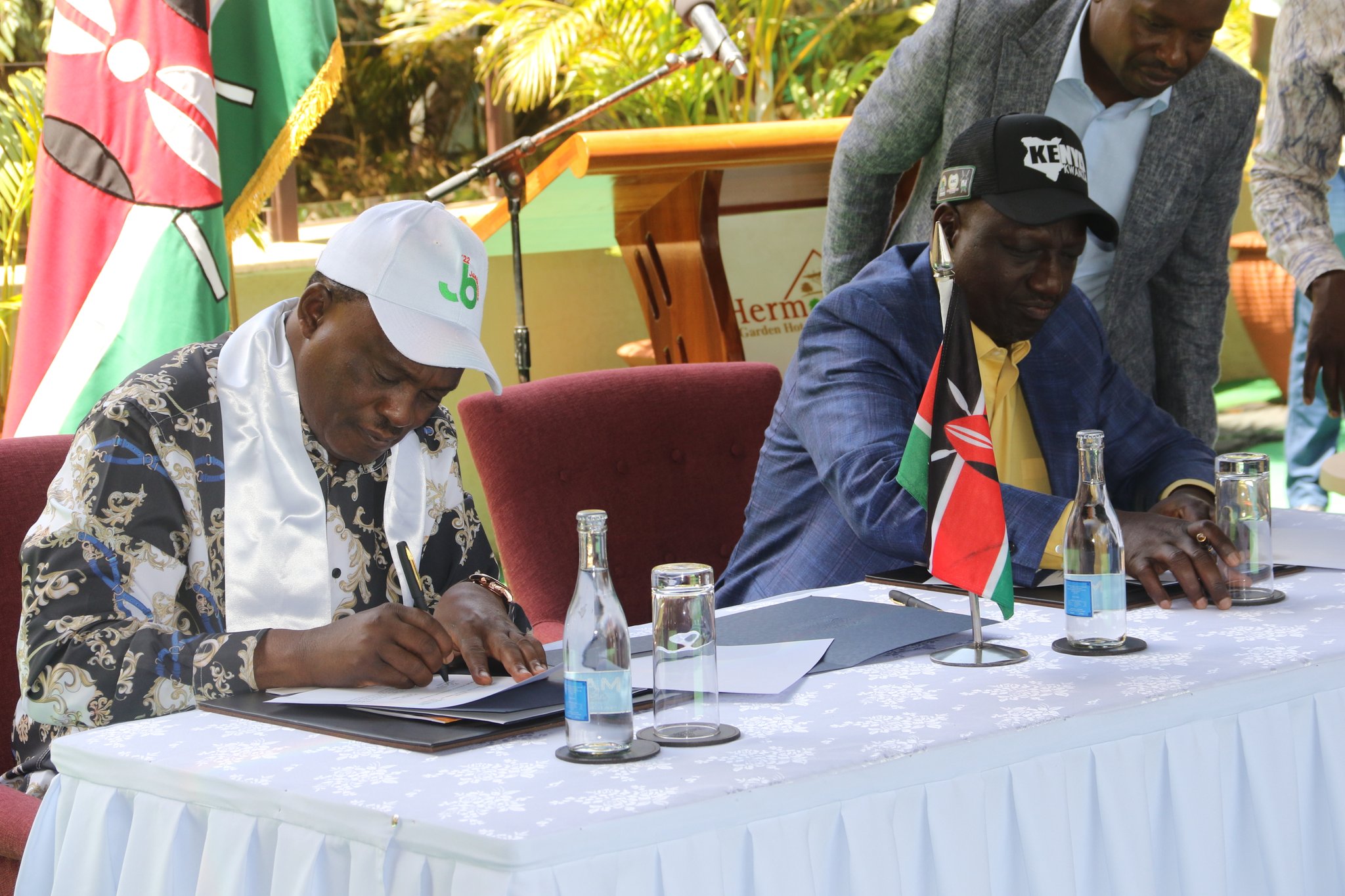
Justin Muturi’s denial only exposes his fading relevance. Ruto doesn’t need him. The opposition barely notices him. Kenya has moved on, leaving Muturi clinging to shadows of lost influence. [Photo: Courtesy]
Ruto Doesn’t Need Muturi’s Empty Shell
If there’s one thing President Ruto understands, it’s the politics of value. Ruto engages those who can deliver constituencies, not commentary. He knows Muturi cannot sway the Embu vote, control Mount Kenya politics, or even rally local MCAs. His DP party is dormant, existing only on paper and press statements.
Muturi’s denial of meeting Ruto’s allies isn’t noble—it’s self-preservation. He wants to look like a man being courted, even when no one is knocking. Hanging onto Ruto’s name keeps him relevant in the opposition, where he is fast fading. Within the Azimio fold, he’s barely noticed. His name doesn’t appear in strategy meetings, and his opinions carry no weight.
While Ruto is meeting heavyweights like Raila, Kalonzo, and Gideon Moi to shape Kenya’s political future, Muturi is issuing denials about imaginary meetings. That contrast alone explains his current irrelevance. The president’s team has bigger fish to fry, and Muturi simply isn’t one of them.
A Man Following the Big Boys
Muturi’s pattern is predictable: attach himself to power, serve loyally until the tide shifts, then declare independence and seek new alliances. It worked when KANU collapsed. It worked again under TNA. It worked once more when Ruto came calling. But this time, there is no tide left to ride.
He has become a passenger in Kenya’s political train—always present but never steering the engine.
For a man who once occupied the powerful Speaker’s chair, it’s a tragic descent into irrelevance. He is now reduced to chasing headlines about alleged meetings with Ruto’s allies to stay visible. But Ruto doesn’t need to meet Muturi. He already owns the ground Muturi once stood on.
In a world of political heavyweights, Muturi is just a lightweight—a man who once sat at the table but now stands outside, hoping someone remembers his name.
Kenya Insights allows guest blogging, if you want to be published on Kenya’s most authoritative and accurate blog, have an expose, news TIPS, story angles, human interest stories, drop us an email on [email protected] or via Telegram
-

 Grapevine6 days ago
Grapevine6 days agoAlleged Male Lover Claims His Life Is in Danger, Leaks Screenshots and Private Videos Linking SportPesa CEO Ronald Karauri
-

 Lifestyle1 week ago
Lifestyle1 week agoThe General’s Fall: From Barracks To Bankruptcy As Illness Ravages Karangi’s Memory And Empire
-

 Grapevine2 days ago
Grapevine2 days agoRussian Man’s Secret Sex Recordings Ignite Fury as Questions Mount Over Consent and Easy Pick-Ups in Nairobi
-

 Investigations2 weeks ago
Investigations2 weeks agoEpstein Files: Sultan bin Sulayem Bragged on His Closeness to President Uhuru Then His Firm DP World Controversially Won Port Construction in Kenya, Tanzania
-

 News2 weeks ago
News2 weeks agoAUDIT EXPOSES INEQUALITY IN STAREHE SCHOOLS: PARENTS BLED DRY AS FEES HIT Sh300,000 AGAINST Sh67,244 CAP
-

 Business2 weeks ago
Business2 weeks agoKRA Can Now Tax Unexplained Bank Deposits
-

 Investigations1 week ago
Investigations1 week agoEpstein’s Girlfriend Ghislaine Maxwell Frequently Visited Kenya As Files Reveal Local Secret Links With The Underage Sex Trafficking Ring
-

 News1 week ago
News1 week agoState Agency Exposes Five Top Names Linked To Poor Building Approvals In Nairobi, Recommends Dismissal After City Hall Probe

